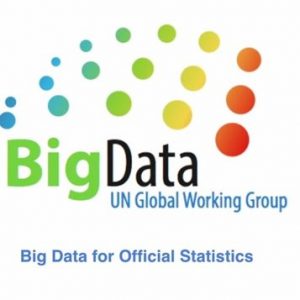COVID-19: UN Calls for Timely, Accurate and Trusted Official Statistics
Asia-Pacific countries have committed to data-driven decision-making to build back better in the context of the global pandemic.
Countries in Asia and the Pacific have pledged to promote reliable and timely statistics to inform sound policymaking and empower people in the region at a time when data are increasingly becoming critical.  Governments expressed their resolve at the opening of the seventh Committee on Statistics, convened by the United Nations Economic and Social Commission for Asia and the Pacific (ESCAP) in Bangkok.
Governments expressed their resolve at the opening of the seventh Committee on Statistics, convened by the United Nations Economic and Social Commission for Asia and the Pacific (ESCAP) in Bangkok.
“Targeting which segment of the population and sectors of the economy that are most affected by the huge impacts of the COVID-19 pandemic requires good data and statistics,” highlighted United Nations Under-Secretary-General and Executive Secretary of ESCAP Ms. Armida Salsiah Alisjahbana in her opening remarks. She further underscored that a whole-of-government approach to data and statistics is essential.
Also Read : Big Data Ending Social Divisions’ Strengthening
“At a time of crisis, governments must more than ever rely on timely, reliable data to make decisions to mitigate harm and support their citizens. In addition, given the impacts of the COVID-19 pandemic on our interconnected world, decisions made today will have consequences that will last far into the future, affecting people in every region and community,” shared Ms Wanpen Poonwong, Director-General, National Statistical Office, Thailand.She added, “This is a crucial time for us to continue working together in the international statistical community to support each other. Timely, accurate and trusted official statistics are our best bet to ensure no one is left behind.”
Three priority topics for regional action will be discussed at the biennial intergovernmental Committee this year: accounting for integrated statistics and analysis, embracing big data to modernise official statistics and transforming human resources management.
Gogita Todraze, Executive Director, National Statistics Office of Georgia was elected as the Chair for the seventh session. He expressed his hope that the cooperation and active engagement of all delegates would generate concrete decisions that shape the future of statistics work in the region. Delegates will also review progress on two overarching commitments for advancing statistics: the 2016 Collective Vision and Framework for Action by the Asia-Pacific statistical community and the 2019 Declaration on Navigating Policy with Data to Leave No One Behind.
On the sidelines of the Committee, the United Nations Statistical Institute for Asia and the Pacific (SIAP) also commemorated its 50th anniversary and launched a book celebrating the milestones of the Institute. Over the past 50 years, the Institute has trained over 21,000 statisticians and policy analysts from 145 countries and territories on producing timely and high-quality official statistics for development planning and decision making.
“The COVID-19 pandemic is forcing the governments of many countries to completely change how they produce official statistics. I am sure statisticians are very busy planning and implementing innovative approaches to conducting statistical surveys sustainably, as well as responding to the demand for policymaking statistics to solve emerging challenges. In order to address these challenges, I believe the role of SIAP is becoming even more important,” said H.E. Ms. Takaichi Sanae, Minister for Internal Affairs and Communication, Japan.
